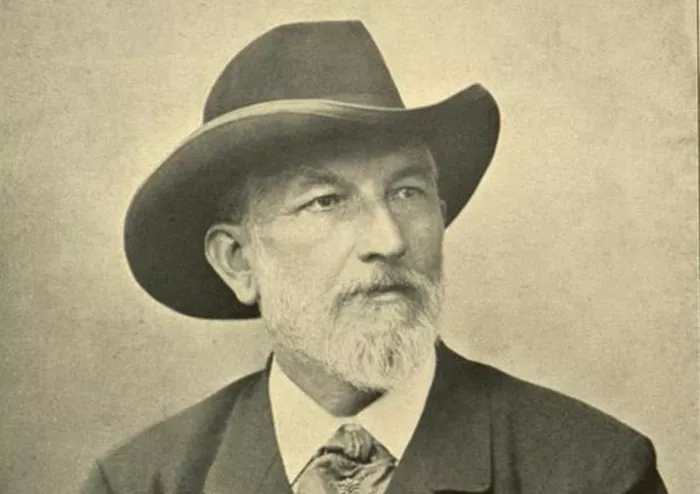The 19th century was a transformative period for German poetry, marked by movements such as Romanticism, Realism, and early Modernism. Among the many poets who contributed to the literary landscape of this era, August Hermann remains a relatively lesser-known yet significant figure. His works reflect the intellectual and emotional depth characteristic of 19th-century German poetry while embodying his unique poetic voice. This article explores the life, work, and impact of August Hermann within the context of 19th-century German poetry and compares his contributions to those of his contemporaries.
August Hermann
August Hermann was born in Germany during the early 19th century, a time of significant social, political, and artistic changes. While specific details about his early life remain scarce, it is known that he was deeply influenced by the Romantic movement that dominated German literature in the first half of the century. He was also shaped by the philosophical discourses of his time, particularly those of Johann Wolfgang von Goethe and Friedrich Schiller.
Hermann’s poetry exhibits a strong connection to nature, introspection, and human emotions, aligning with the themes explored by Romantic poets. However, as the 19th century progressed and literary movements evolved, his later works began to reflect elements of Realism, focusing on human experiences and societal issues.
Themes in August Hermann’s Poetry
Romantic Influences
Like many poets of his time, Hermann’s early works were heavily influenced by German Romanticism. His poetry often depicted landscapes imbued with emotion, reflecting an idealized view of nature. This connection between nature and the human soul was a central theme in 19th-century German poetry, and Hermann’s works contributed significantly to this tradition.
His poems frequently explored themes of longing (Sehnsucht), a key motif in German Romantic poetry. This sense of yearning was often directed toward unattainable beauty, lost love, or an idealized past. The influence of poets such as Novalis and Joseph von Eichendorff is evident in his lyrical style and thematic choices.
Transition to Realism
As Hermann matured as a poet, his focus shifted from the idealized visions of Romanticism to the more pragmatic concerns of Realism. This transition was in line with broader literary trends in 19th-century German poetry, as poets began to address contemporary social and political issues. His later poems depict everyday life with a keen observational eye, highlighting the struggles and triumphs of ordinary people.
While he never fully abandoned the emotional depth characteristic of Romantic poetry, Hermann’s later works embraced the clarity and directness of Realism. His ability to balance poetic beauty with a realistic portrayal of human experience set him apart from many of his contemporaries.
Literary Style and Techniques
Hermann’s poetry is distinguished by its lyrical quality and meticulous use of imagery. His language is simple yet profound, a hallmark of 19th-century German poetry. He frequently employed metaphors drawn from nature, using them to explore complex emotions and philosophical ideas.
One of Hermann’s defining techniques was his use of musicality in verse. Much like Heinrich Heine, another prominent 19th-century German poet, Hermann’s poetry often possessed a rhythmic quality that made it particularly effective when read aloud. His use of meter and rhyme schemes contributed to the accessibility and emotional impact of his works.
Comparison with Contemporary Poets
Johann Wolfgang von Goethe
Although Goethe belonged to an earlier generation, his influence on Hermann is undeniable. Goethe’s exploration of nature, human emotion, and philosophical themes resonated deeply with Hermann’s poetic sensibilities. However, while Goethe’s works spanned multiple literary movements, including Weimar Classicism, Hermann remained primarily within the Romantic and Realist traditions.
Heinrich Heine
Heinrich Heine was one of the most influential 19th-century German poets, known for his wit, political engagement, and lyrical poetry. Compared to Heine, Hermann’s poetry was less satirical but shared a similar emphasis on musicality and emotional depth. While Heine often used irony to critique society, Hermann’s approach was more introspective and reflective.
Eduard Mörike
Eduard Mörike’s poetry, like Hermann’s, bridged the gap between Romanticism and Realism. Both poets exhibited a deep appreciation for nature and personal introspection. However, Mörike’s works often contained a playfulness that was less prominent in Hermann’s more solemn and contemplative poetry.
Legacy and Influence
August Hermann’s contributions to 19th-century German poetry may not be as widely recognized as those of Goethe, Heine, or Mörike, but his works remain an essential part of the literary tradition. His ability to evolve with changing literary trends, moving from Romantic idealism to Realist portrayals of life, reflects the broader shifts in German poetry during the 19th century.
His influence can be seen in later poets who sought to blend lyrical beauty with realistic subject matter. Although not as widely studied today, Hermann’s poetry continues to be appreciated by scholars and enthusiasts of 19th-century German poetry.
Conclusion
August Hermann stands as a testament to the richness of 19th-century German poetry. His work captures the transition from the Romantic idealism of the early 19th century to the more grounded realism of the later years. While he may not have achieved the same level of fame as some of his contemporaries, his poetry offers valuable insights into the literary and cultural currents of his time. Through his evocative imagery, lyrical quality, and emotional depth, Hermann’s contributions remain an enduring part of German literary history.

